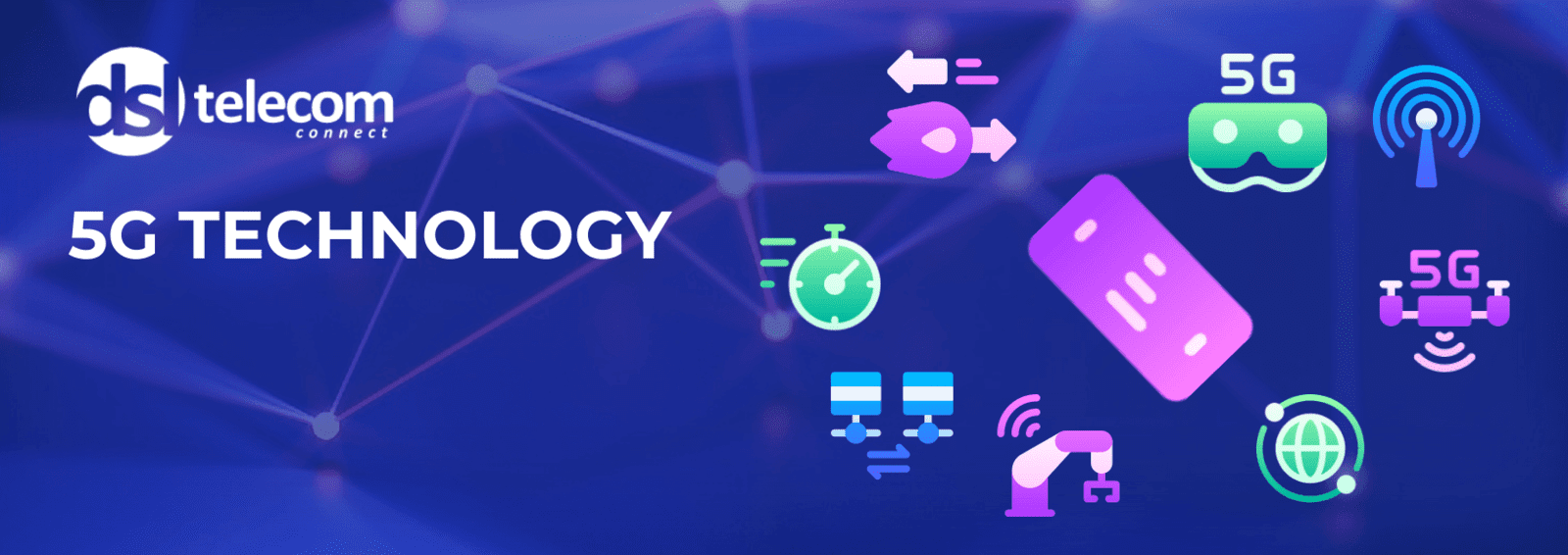
Recently, 5G has started taking the world by storm. But just how does it differ from 4G? The superfast fifth-generation mobile network, most commonly referred to as 5G, is a mobile internet connection that promises next-level coverage, usage and reliability. To put it in perspective, downloading a movie on 4G takes 50 minutes — while, on 5G, it takes only 9 minutes. Here we'll take a look at 5G internet in more detail and learn how it can improve our lives. Essentially, if there's anything you've wanted to know about 5G wireless technology, we've got you covered.
So What Exactly Is 5G?
5th generation wireless (5G) is the latest advancement in cellular technology. It was engineered to vastly increase the speed and responsiveness of wireless networks. With 5G LTE, data transmitted over wireless connections can travel at multigigabit speeds as high as 20 Gbps. Multi-gigabit (multi-gig) Internet is a network connection with speeds greater than 1 Gbps. Multi-gig Internet connections used to be very rare but are becoming more widely available in many areas.
That means quicker downloads, much lower lag and a significant impact on how we live, work and play. 5G speed and other connectivity benefits are expected to make businesses more efficient and give consumers access to more information faster than ever before. Connected cars, smart stadiums and advanced gaming - they all will rely on 5G networks.
How Does 5G Work?
Wireless communications systems use radio frequencies (also known as spectrum) to carry information through the air. 5G LTE operates in the same way, but uses higher radio frequencies that are less cluttered. This allows for it to carry more information at a much faster rate.
Like other cellular networks, 5G networks use a system of cell sites that divide their territory into sectors and send encoded data through radio waves. Each cell site must be connected to a network backbone, whether through a wired or wireless backhaul connection. 5G wireless technology changes the way data is encoded, and offers many more options to carriers in terms of airwaves to use.
The Main Differences Between Previous Generations & 5G
As the next generation of wireless technology, 5G internet differs significantly from previous generations. While earlier networks were designed to connect people to people and the internet, 5G technology is expanding the range of entities that communicate even more widely. It connects things with people, the internet and other things.
- First generation - 1G: 1980s: 1G delivered analogue voice and could only be used for voice calls.
- Second generation - 2G: Early 1990s: 2G introduced digital voice but we still use many fundamental services today such as SMS, MMS, international roaming, call hold, billing, conference calls and long distance calls.
- Third generation - 3G: Early 2000s: 3G brought mobile data and is used in many more applications like the sharing of digital photos, movies and high-quality voice and video calls.
- Fourth generation: 4G: 2010s: 4G lead the way in the era of mobile broadband, supporting speeds up to 100Mbps and high-quality streaming capabilities.
1G, 2G, 3G and 4G all led to 5G, which is designed to provide more connectivity than was ever available before.
With its high speeds, superior reliability and negligible latency, 5G will expand the mobile ecosystem into new realms.
What Are The Key Benefits Of 5G?
Higher Speed
One of the major pros of 5G technology is its ability to work faster on cellular and other devices. Unlike its predecessors - 2G, 3G, 4G, and 4G LTE, where downloading movies, videos and music and streaming services would have taken hours, with 5G technology these tasks become much easier with downloading taking only a few seconds. Moreover, one sector where the 5G technology will add value is the global booming gaming industry, according to experts. For the gamer, this means super-fast downloads and uploads, glitch-free multiplayer video games, live streaming and real-time gaming.
Lower Latency
Compared to earlier technologies, 5G technology has an incredibly low latency which makes it easier to support other new-edge technologies such as artificial intelligence, IoT, and virtual reality, which is another major advantage of 5G technology. Furthermore browsing is made easier and this improves the user experience.
Improved Bandwidth
With increased bandwidth, 5G technology provides seamless transfer of data, which boosts the connectivity amongst devices and the overall user experience. Moreover, the technology provides users with a seamless transition of services between cellular devices and wireless wi-fi, thus improving performance.
Less Tower Congestion & Increased Capacity
Often 4G cellular networks get congested which results in various problems while we try and access important data.
5G networks on the other hand will allow users to avoid such problems due to improved speed and more bandwidth. 5G uncapped has the ability to deliver up to 100 times more capacity than 4G which means users will be able to access the internet with greater efficiency.
How Fast Is 5G?
With 5G technology, data transmitted over wireless broadband connections can travel at multigigabit speeds with potential peak speeds as high as 20Gbps. 5G is designed to reach speeds of up to 10 times faster than 4G and works best at average speeds of 150-200Mbps. By comparison, 4G works at average speeds of 23-35Mbps.
For example, a full HD film could be downloaded in less than 3 minutes on a 5G network, as opposed to around 15 on a 4G network. Now that's fast!
How Do Consumers Benefit From 5G?
The average consumer uses close to 11 GB of data per month on their smartphone. This is driven by explosive growth in video traffic as mobile is increasingly becoming the source of media and entertainment, as well as the massive growth in always-connected cloud computing and experiences.
4G completely changed how we consume information. In the past decade we have witnessed rapid changes in the mobile app industry around services such as video streaming, ride sharing, food delivery and more.
5G will expand the mobile ecosystem to new industries. This will contribute to cutting-edge user experiences such as boundless extreme reality (XR), seamless IoT capabilities, new enterprise applications, local interactive content and instant cloud access, to name a few.
5G will also support new services for South African consumers, like online augmented and virtual reality gaming and UHD streaming.
